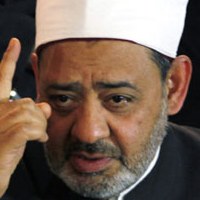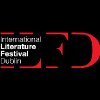![]()
Fri, Feb 8, 2013 | MEForum | by Alexander H. Joffe
Originally published in The Algemeiner.

Flyer for the boycott, divestment and sanctions event at Brooklyn College, Feb 7, 2013. (Source: Brooklyn College students for justice in Palestine; www.brooklynsjp.com)
The recent boycott, divestment and sanctions (BDS) event at Brooklyn College featuring professional Palestinian Omar Barghouti and celebrity anti-Israel academic Judith Butler was true to form. A dual purpose was served. For one, students and staff were treated to calls for the destruction of Israel, conducted in a quasi-academic setting, with the implicit endorsement of the institution. Second, as always, trap was sprung on opponents of such campus abuses. Having successfully planned the event and represented it as an intellectual exploration of the one state solution, in which Israel is made extinct, the inevitable complaints regarding its one-sidedness and borderline antisemitism were met with the usual howls of censorship and demands for academic freedom. Politicians became involved on both sides. City Council members were opposed to the campus and tax dollars supporting an anti-Israel recruitment rally. Mayor Bloomberg then came out in favor, and with characteristic tact and insight, condemned the event’s content and scolded the presumably close-minded opponents, wittily telling them to apply to school in North Korea.
Never mind that any event promoting a parallel desire to eliminate Palestine would not be able to schedule a room at a university, much less garner faculty support. And never mind that anti-Israel voices are omnipresent on American campuses, and regularly shout down supporters of Israel, sometimes, as Israeli Ambassador Michael Oren found at the University of California at Irvine, quite literally. Lost in the accusations and counter-accusations is how the BDS movement has been relentlessly successful at politicizing American campuses and implicating Jews in its efforts.
The trap works like this. An outside group such as the “International Solidarity Movement,” a group of students, or an individual faculty member sponsors a BDS event, usually without the knowledge of the administration. Then someone, usually from the Jewish community, catches wind and protests, and the administration either plays dumb about having rented a room to haters or is forced to defend the event under the guise of “academic freedom.” More perniciously, the college or university’s Jewish Studies program is then asked to participate in the anti-Israel rally for the sake of “balance” or to develop a counter-program. Sometimes this is baked in from the beginning by BDS organizers. If Jewish studies faculty members go along, then there is “balance” and the event cannot be attacked. If not, then “balance” has been sought but the resulting lack is the fault of the Jewish Studies program.
Jewish Studies at American colleges and universities are almost wholly apolitical in the sense that they were created and are maintained — largely by the Jewish community rather than the institutions themselves — as means for placing serious scholarship and teaching about Jewish history and culture into the academic environment. Individual faculty members have a wide range of political viewpoints, most of which they keep to themselves. The programs often offer courses on Zionism and Israel, not as institutional endorsements but as serious treatments of important historical and cultural phenomena. In fact, most such courses take pains to be “fair,” unlike many of their counterparts in political science or history departments, which privilege the “expertise” of Norman Finkelstein, Edward Said, Noam Chomsky and others.
Seriousness and fairness are the trap when dealing with the BDS movement. Few Jewish Studies faculty are activists in any way; in fact, the majority of American faculty members are not activists either, another fact counted on by the hard core of deeply political faculty — mostly in the humanities and social sciences — who are bitterly opposed to Israel.
Specialists in medieval Jewish history, Yiddish culture or Biblical Archaeology are thus compelled to participate or not in the kangaroo courts and to debate individuals who spend their entire lives devoted to the destruction of Israel. Most cannot knowledgeably discuss the Hussein-McMahon correspondence of 1915 or Palestinian politics since the creation of the PLO in 1964, or a hundred other details that are thrown up as factoids to discredit and dismantle Israel. The implication in asking Jewish Studies faculty is that as specialists on the Jews, or as Jews themselves, they should somehow should know everything; the reality is that most do not. This too is a trap. Untenured faculty members rarely take the bait; there is too much at stake, while tenured faculty risk their relationships with colleagues and being forever targeted by professional Palestinian supporters.
Most Jewish Studies faculty members are quiet teachers and scholars, who also know that the prevailing winds on campus blow against Israel and Zionism. Promotion and tenure, grant money, leadership roles in departments and colleges, and the ability to get along on a daily basis, are often shaped by attitudes toward Israel. The BDS movement turns these undercurrents into an outright litmus test.
By putting Jewish Studies faculty in the position of being the “balance” against BDS, proponents of destroying Israel successfully put faculty on the defensive, forcing them to either speak out in rigged settings with packed audiences ready to shout them down, or to remain silent. “Good Jews” speak out against Israel, while pro-Israel Jews are cast as favoring the “colonialist-settler” state. Either way they and the university as a whole are implicated and sullied by the sordid pseudo-intellectualism of BDS, which pretends to present alternative viewpoints and arguments regarding the current existence of Israel and its relationships with the Palestinians, by demanding Israel’s extinction.
Exploiting the idea of human rights that is worshiped as a secular religion on campus, relying on spineless administrators and witless politicians who gladly mistake anarchy and hatred for academic freedom, and supported by a hard core of faculty members and students who passionately hate Israel, BDS professionals like Barghouti and their famous faculty enablers like Butler move from campus to campus largely unopposed. Without loudly exposing their game at every stage, they will continue to win.
Alex Joffe is an archaeologist and historian. He is currently a Shillman-Ginsburg fellow of the Middle East Forum and a research associate of the Institute for Community and Jewish Research.



 RSS
RSS










Latest Comments
Hello Mike, Thank you for your positive feedback to the article. I felt there wasn’t too much critical analysis of ...
Thanks for this considered and well constructed article. A follow up article on the manner in which the editorial contro...
THE CLUELESSNESS OF CLAIMING THAT OBAMA'S MIDDLE EAST POLICIES WERE A FAILURE CANNOT BE FURTHER FROM THE TRUTH, WHAT THE...
As long as Obama is the president of the usa do not trust the us government......
Thank you for an good read....